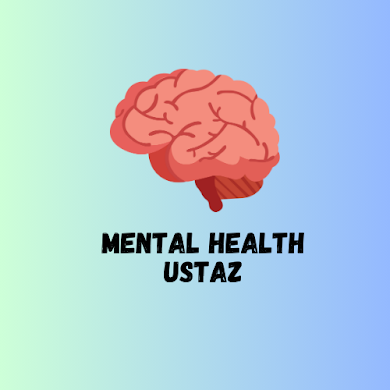Introduction: Mental health is just as crucial as physical health, but it often takes a backseat in our busy lives. How can I prevent mental illness? Preventing mental illness is essential for leading a fulfilling life. In this blog post, we'll delve into the key strategies and insights on how you can effectively prevent mental illness. We'll provide detailed answers to essential questions, and along the way, we'll include a helpful hyperlink to the Mental Health Foundation's resources for further guidance.
Step 1: How can I prevent mental illness?
- **Maintain a Healthy Lifestyle (Diet, Exercise, and Sleep)**: Your daily habits play a significant role in mental well-being. A well-balanced diet, regular exercise, and adequate sleep are vital for preventing mental illness. These practices boost the production of feel-good hormones, such as serotonin, which play a significant role in keeping mental health issues at bay.
- **Manage Stress**: Chronic stress is a major contributor to mental health issues. Developing effective stress management techniques, such as mindfulness, deep breathing exercises, or seeking professional counseling when necessary, can help prevent the onset of mental illness.
- **Stay Connected**: Social connections are crucial for maintaining good mental health. Keeping a network of supportive friends and family can reduce feelings of loneliness and isolation, which can otherwise contribute to mental health problems.
- **Set Realistic Goals**: Unrealistic expectations can lead to mental stress. Establish achievable goals, prioritize self-care, and manage your time wisely. Doing so can help in preventing anxiety and depression.
- **Mental Health Education**: Knowledge is power. Educate yourself about mental health issues, their symptoms, and potential triggers. The more you know, the better equipped you'll be to prevent mental illness. Be sure to stay informed about the latest research and resources available in the field.
- **Seek Professional Help When Needed**: If you're struggling with your mental health, don't hesitate to reach out to a mental health professional. Early intervention is key to preventing severe mental illness. Professionals can provide you with tools and strategies to maintain your mental well-being.
- **Avoid Substance Abuse**: Substance abuse, including alcohol and drugs, can significantly impact mental health. Avoid or seek help for substance-related issues. Substance abuse can lead to addiction and exacerbate existing mental health conditions.
Step 2: [Learn more about mental health prevention](https://www.mentalhealth.org.uk/explore-mental-health/a-z-topics/prevention-and-mental-health)
To delve deeper into the subject of preventing mental illness, it's highly recommended to explore the resources provided by the Mental Health Foundation. Their comprehensive guide offers valuable insights and strategies to bolster your mental health and prevent mental illnesses. The foundation's website is a valuable source of information and support.
Conclusion:
Preventing mental illness is a multifaceted process that involves maintaining a healthy lifestyle, managing stress, fostering social connections, setting realistic goals, and seeking professional help when needed. It is a proactive effort that starts with self-awareness and education. By incorporating these strategies into your life, you can take significant steps towards better mental health.
In a world that often prioritizes physical health, remember that your mental well-being matters just as much. Don't hesitate to seek help and support when needed, and for additional guidance and resources, don't forget to check out the Mental Health Foundation's comprehensive guide on mental health prevention. Your mental well-being matters, so take the necessary steps to protect it. Remember, prevention is key, and by implementing these strategies, you're taking a proactive approach to maintaining good mental health.
Certainly, here are five frequently asked questions (FAQs) related to preventing mental illness:
- **Can mental illness really be prevented, or is it inevitable for some people?**
- While not all mental health issues can be prevented, many strategies can reduce the risk of developing them. Just as with physical health, proactive steps can significantly lower the likelihood of experiencing mental health problems.
- **Is it possible to prevent mental illness without professional help?**
- Yes, many preventive measures can be implemented without professional assistance. Maintaining a healthy lifestyle, managing stress, and staying connected to a support network are steps individuals can take on their own. However, seeking professional help is advisable when dealing with severe symptoms or specific mental health conditions.
- **How do I know if I'm at risk for mental illness?**
- Everyone has some risk for mental health issues, but certain factors, such as genetics, life experiences, and environmental factors, can increase this risk. Being aware of your family history and personal experiences can help you better understand your individual risk factors.
- **What role does early intervention play in preventing mental illness?**
- Early intervention is crucial in preventing the progression of mild mental health issues into more severe conditions. Recognizing symptoms and seeking help at the earliest signs of distress can lead to more effective and efficient prevention.
- **How can I support a friend or family member in preventing mental illness?**
- Supporting loved ones in their mental health journey is vital. You can encourage them to seek help when needed, provide emotional support, and promote a healthy lifestyle together. Open communication and understanding can go a long way in preventing mental illness for those you care about.
Remember that mental health prevention is an ongoing process, and it's essential to address any concerns or questions you have with a healthcare professional or mental health expert.





1 Comments
Thank you for your insightful and informative writing about preventing mental illness. Your emphasis on proactive techniques, such as living a healthy lifestyle, minimising stress, and cultivating social ties, resonates strongly. These techniques are consistent with suggestions from mental health groups, which emphasise regular physical exercise, balanced diet, and appropriate sleep as essential components of mental well-being.
ReplyDeleteYour remark concerning mental health education is very relevant. Understanding the indications and triggers of mental health difficulties allows people to seek assistance sooner, thereby avoiding more serious consequences. Resources such as the Mental Health Foundation provide useful information on this issue. Unlock the full potential of apprenticeship after uni by clicking here to access our exclusive content, including how-to guides, FAQs, and customer testimonials.